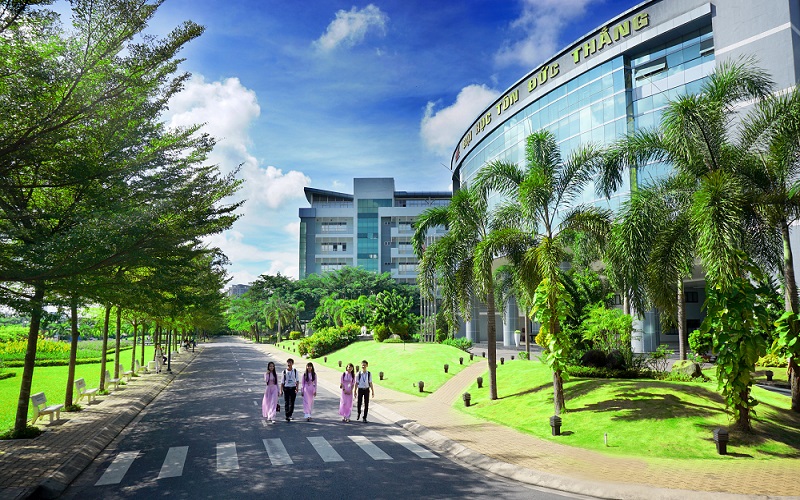Development
The Faculty of Civil Engineering, Ton Duc Thang University (TDTU), was found on 20 Nov. 1997, and it is one of the oldest faculties of the TDTU. Our education orientations were primarily focused on training undergraduate students to become civil engineers. These orientations were expanded to serve for the needs of undergraduate students who aim to obtain the degrees of bridge and road construction engineering (2000). Our targets were continuously enlarged to train students who seek to receive the degrees of urban & regional planning (2005) and architecture engineering (2013). The higher education programs for the civil engineering field were initially created for M.Eng. and Eng.D levels in 2011 and 2016, respectively. At the early stage (1997), we have two staff members. Over time, the staff numbers of the faculty are rapidly increased to 67 (2017), including an associate professor, 19 Eng.Ds/PhDs, 9 engineers, 6 Eng.D/PhD and 30 M.Eng./MSc. students. Besides, 5 foreign visiting professors/scientists are concurrently working with us as advisers and/or tutors. For the time being, we serve for around 2,000 undergraduate students. The given scientific activities of the faculty during the history of 20 years reflect truly that our reputation is on the increase in the quality of educational services.
All subjects of the undergraduate programs within the faculty were referred to serve on credit and the duration of all undergraduate courses was reduced from 5 to 4.5 years since 2007. The contents of these courses are yearly updated and revised to adapt with the international disciplines for the field of civil engineering. These actions will serve for the needs of undergraduate students as they can independently work/study further after their graduations.
Another innovation was realized in our undergraduate programs at which these course durations were all reduced to 4 years since 2015. The contents of these courses were particularly integrated from the programs of other outstanding foreign universities, i.e. National University of Singapore, Nanyang Technological University, and University of Queensland. Along with the innovation of the undergraduate programs, the postgraduate programs were also upgraded to globalize their study courses integrating from the criteria of advanced higher education programs.
Based on the completeness of the given changes in our training programs, in combination with our staff experiences in both teaching and research, these resources effectively assist us in realizing the purpose of education. We therefore created a number of international exchange programs with short and long-term training courses for both under- and postgraduate students, they mainly come from Denmark, Sweden, Belgium, Germany, France, etc.
One of many excellent outcomes is, over 98% undergraduate students obtain jobs after their graduations. These outputs directly result from the said innovations during the history of the faculty. Along with the development of leadership in boosting teaching, the environment of research within the faculty was largely improved as well. For example, we achieved 14 ISI publications, 10 SCOPUS/domestic articles, and 12 research projects in the academic year of 2016/2017. Especially, our students and staffs are annually awarded prizes for outstanding/distinguished contributions in research since 2013. Among these prizes, a winner from our faculty is the first student from the Southern universities of Vietnam who awarded the ‘Loa Thanh’ prize of the best undergraduate dissertation in civil engineering, offered by Associations of Vietnamese Architects & Construction, Ministry of Construction, and Ho Chi Minh Communist Youth Union.

